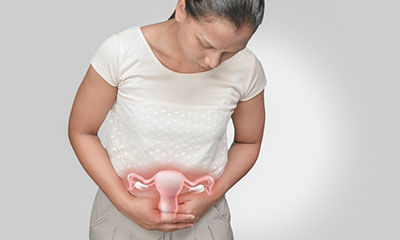Get the App
For Doctors
Login/Sign-up
About
Health Feed
AllQ&AsTipsQuizzes
Ambrodil Plus Syrup Health Feed
Asked for male, 46 years old from Bijapur
Share
Bookmark
Report
Asked for female, 25 years old from Delhi
Share
Bookmark
Report
I am sorry to hear about your concern but will be happy to assist you.
Most functional cysts are 2 to 5 centimeters (cm) (about 3/4 of an inch to 2 inches) in size. Ovulation happens when these cysts are around 2 to 3 cm in size. However, some may reach sizes of 8 to 12 cm (around 3 to 5 inches).
Let's connect over a call so that we can discuss your concern in details and make a suitable treatment plan for you.
Most functional cysts are 2 to 5 centimeters (cm) (about 3/4 of an inch to 2 inches) in size. Ovulation happens when these cysts are around 2 to 3 cm in size. However, some may reach sizes of 8 to 12 cm (around 3 to 5 inches).
Let's connect over a call so that we can discuss your concern in details and make a suitable treatment plan for you.
27 people found this helpful
Asked for female, 20 years old from Mumbai
Share
Bookmark
Report
Asked for female, 28 years old from Coimbatore
Share
Bookmark
Report
Asked for female, 24 years old from Mysore
Share
Bookmark
Report
PCOD/PCOS is a common hormonal disorder in women which can lead to weight gain and irregular periods. While most women depend on pills to deal with it, these simple changes in your lifestyle will help you deal with the condition in a better way.
1. Nutritional approach: Deficiency of micronutrients contributes to insulin insensitivity and compromise ovarian function. So,
1. Don't take tea empty stomach. Eat something like a banana (if you are not diabetic) or any seasonal fruit or soak...more
1. Nutritional approach: Deficiency of micronutrients contributes to insulin insensitivity and compromise ovarian function. So,
1. Don't take tea empty stomach. Eat something like a banana (if you are not diabetic) or any seasonal fruit or soak...more
Asked for female, 23 years old from Lucknow
Share
Bookmark
Report
Pcod/pcos is a common hormonal disorder in women which can lead to weight gain and irregular periods. While most women depend on pills to deal with it, these simple changes in your lifestyle will help you deal with the condition in a better way.
1.Nutritional approach: deficiency of micronutrients contributes to insulin insensitivity and compromise ovarian function. So,
1. Don't take tea empty stomach. Eat something like a banana (if you are not diabetic) or any seasonal fruit or soaked ...more
1.Nutritional approach: deficiency of micronutrients contributes to insulin insensitivity and compromise ovarian function. So,
1. Don't take tea empty stomach. Eat something like a banana (if you are not diabetic) or any seasonal fruit or soaked ...more
26 people found this helpful
Asked for male, 28 years old from Indore
Share
Bookmark
Report
I am sorry to hear about your concern but will be happy to assist you.
The normal size of a healthy ovary is 30 mm long, 25 mm wide, and 15 mm thick. In other words, the normal ovary size is 3 cm long, 2.5 cm wide, and 1.5 cm thick (0.8-12. 7 cc). In a healthy and normal-sized ovary, the number of egg reserves are likely sufficient.
Let's connect over a call so that we can discuss your concern in details and make a suitable treatment plan for you.
The normal size of a healthy ovary is 30 mm long, 25 mm wide, and 15 mm thick. In other words, the normal ovary size is 3 cm long, 2.5 cm wide, and 1.5 cm thick (0.8-12. 7 cc). In a healthy and normal-sized ovary, the number of egg reserves are likely sufficient.
Let's connect over a call so that we can discuss your concern in details and make a suitable treatment plan for you.
5 people found this helpful
Health Query
Share
Bookmark
Report
Asked for male, 29 years old from Ranchi
Share
Bookmark
Report
Asked for female, 24 years old from Pune
Share
Bookmark
Report
Ask a free question
Get FREE multiple opinions from Doctors
posted anonymously













